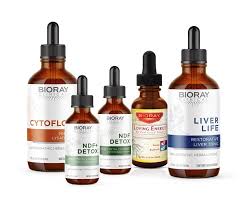Heavy Metal Detox: A Simple Guide to Cleanse Your Body in 2025

Introduction
Our bodies are exposed to toxins every day. Heavy metals like lead, mercury, arsenic, and cadmium can enter through food, water, air, or even household products. Over time, these metals may build up and affect your health. That’s where heavy metal detox comes in—a process that helps remove these harmful elements and supports overall well-being.
In this guide, I’ll share what heavy metal detox means, why it’s important, natural methods you can try, and safety precautions to keep in mind.
What is Heavy Metal Detox?
Heavy metal detox refers to the natural or assisted removal of toxic metals from the body. It can be done through diet, lifestyle changes, supplements, or professional treatments. The goal is to reduce the toxic load, improve organ function, and support better energy and immunity.
Why Do You Need Heavy Metal Detox?
Heavy metals can damage organs and tissues when they accumulate in the body. Some possible symptoms of heavy metal exposure include:
- Fatigue and low energy
- Headaches or brain fog
- Digestive problems
- Weak immunity
- Joint or muscle pain
Detoxing helps to flush out these toxins and restore balance.
Natural Foods for Heavy Metal Detox
One of the easiest and safest ways to support detox is through your diet. Certain foods have natural detoxifying properties:
- Cilantro: Helps bind to heavy metals and move them out of the body.
- Garlic and onions: Rich in sulfur, which supports liver detox.
- Chlorella and spirulina: Algae that bind metals and improve detox function.
- Lemon water: Boosts hydration and liver cleansing.
- Leafy greens: Provide antioxidants to fight oxidative stress caused by metals.
Adding these foods to your daily meals can make a big difference over time.
Lifestyle Tips for Heavy Metal Detox
Apart from diet, your lifestyle choices play a big role in detoxification. Here are some practical steps you can take:
- Drink plenty of water – Keeps your kidneys and liver working efficiently.
- Sweat it out – Exercise or sauna therapy helps release toxins through sweat.
- Reduce exposure – Avoid processed foods, limit canned items, and choose natural cleaning products.
- Support gut health – A strong digestive system prevents metals from being absorbed.
Supplements That Support Detox
Some supplements are known to assist in heavy metal detox, but they should be used with caution and preferably under guidance:
- Activated charcoal – Binds toxins in the gut.
- Zeolite clay – Natural mineral that may trap heavy metals.
- Vitamin C and zinc – Strengthen immunity and reduce metal damage.
- Milk thistle – Supports liver function during detox.
Remember, supplements should never replace a balanced diet.
Professional Heavy Metal Detox Methods
In some cases, professional help may be necessary, especially if metal poisoning is severe. The most common medical treatment is chelation therapy, where special agents are given to bind and remove metals through urine. This treatment should only be done under medical supervision.
Safety Precautions
While detoxing is helpful, it must be done carefully. Here are some important precautions:
- Avoid extreme cleanses that promise instant results.
- Do not overdose on supplements without guidance.
- Consult a doctor if you suspect heavy metal poisoning.
- Pregnant or breastfeeding women should avoid strong detox methods.
Benefits of Heavy Metal Detox
When done safely, detoxing can bring multiple benefits, such as:
- Improved energy levels
- Clearer thinking and reduced brain fog
- Stronger immune system
- Better digestion
- Healthier skin and overall vitality
Conclusion
Heavy metal detox is not just a trend—it’s a practical step to protect your health in today’s toxic environment. By eating detoxifying foods, making healthier lifestyle choices, and seeking professional help when needed, you can support your body’s natural cleansing system.
Start simple: drink more water, add leafy greens, and reduce exposure to toxins. Over time, these small steps can create a big difference in your health and well-being.
Related articles, learn here

